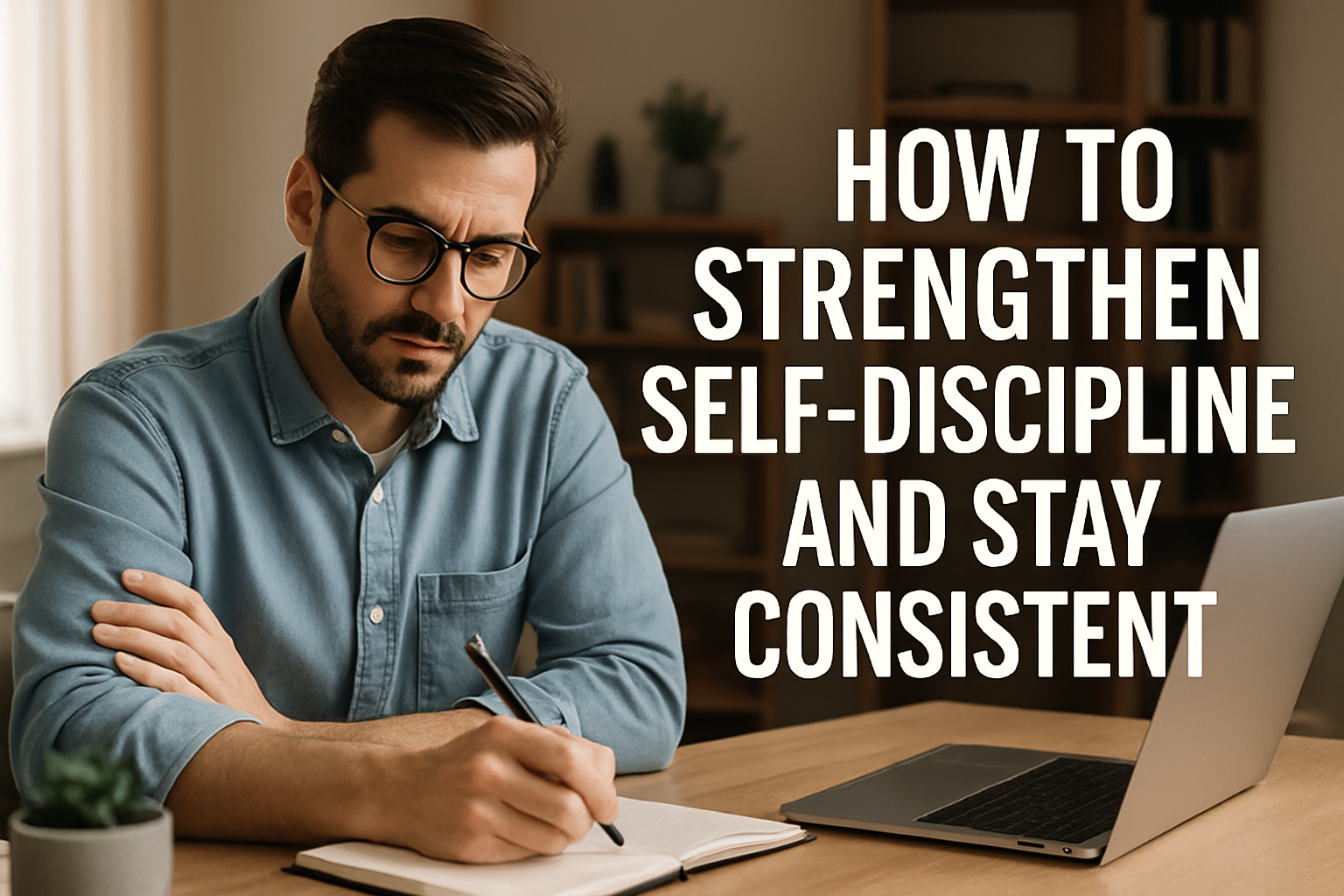Discipline isn’t about being strict or harsh with yourself — it’s about following through on what matters, even when it’s not easy. Self-discipline is the bridge between your goals and your results. It’s what turns intentions into action, and action into lasting success.
If you struggle with starting and stopping, staying motivated, or getting distracted by short-term comfort, this article will help you build the consistency and inner strength you need.
What Is Self-Discipline?
Self-discipline is the ability to do what you should do — even when you don’t feel like it. It means:
- Choosing long-term gain over short-term gratification
- Sticking to habits and routines
- Managing impulses and distractions
- Finishing what you start
It’s not about perfection. It’s about commitment, day after day.
Why Discipline Matters More Than Motivation
Motivation comes and goes — it’s unreliable. Discipline stays.
When you rely on motivation:
- You only act when you feel inspired
- You wait for “the right moment”
- You get stuck in cycles of starting over
When you build discipline:
- You show up no matter what
- You make progress even on hard days
- You earn self-trust and confidence
Discipline gives you freedom: to create, to focus, to grow.
1. Start With One Small Promise
Don’t try to overhaul your life in a day. Begin with one non-negotiable habit that’s simple and clear.
Examples:
- “I’ll make my bed every morning.”
- “I’ll write for 10 minutes every day.”
- “I’ll drink a full glass of water when I wake up.”
Keeping small promises builds momentum — and self-respect.
2. Create a Daily Routine
Discipline thrives in structure. Design a routine that reduces decision fatigue and builds rhythm into your day.
Tips:
- Have consistent sleep and wake times
- Block time for focus, rest, meals, and movement
- Use alarms, checklists, or calendar reminders to stay on track
Make good habits automatic, not optional.
3. Remove Temptations and Triggers
It’s easier to avoid distraction than to resist it constantly.
Try this:
- Turn off phone notifications
- Log out of apps during work blocks
- Put junk food or impulse buys out of sight
- Declutter your space to reduce overwhelm
Make the disciplined choice the easiest choice.
4. Use the “5-Minute Rule”
When you don’t feel like doing something, tell yourself:
“I’ll just do it for 5 minutes.”
Once you begin, momentum takes over. Starting is often the hardest part — this rule removes that barrier.
Use it for:
- Workouts
- Cleaning
- Writing or study sessions
Show up. Let action build motivation.
5. Track Your Progress Visually
Seeing your consistency reinforces the habit.
Try:
- A wall calendar with checkmarks for each completed day
- A habit-tracking app
- A journal with daily reflections
Don’t break the chain — it builds pride and accountability.
6. Reconnect With Your “Why”
On hard days, remember why you started.
Ask:
- “What’s the deeper reason I’m building this habit?”
- “What will my life look like if I stay consistent?”
- “Who am I becoming through this process?”
Purpose fuels perseverance.
7. Embrace Boredom and Repetition
Discipline often feels… boring. That’s normal.
You won’t always feel excited. That’s why it’s a muscle — not a mood.
Practice saying:
- “It’s okay for this to be repetitive.”
- “I can do things even when they’re not fun.”
- “Repetition creates mastery.”
Boredom is not failure — it’s progress.
8. Be Kind, Not Soft
There’s a difference between self-compassion and self-indulgence.
Self-discipline says:
- “I care about myself too much to let myself quit.”
- “I forgive the setback, but I still show up tomorrow.”
Don’t punish yourself — but don’t let yourself off the hook either. Discipline is love in action.
9. Set Clear, Measurable Goals
Vague goals create vague effort. Be specific:
- “Exercise 3x per week for 20 minutes.”
- “No phone in bed after 9 p.m.”
- “Write 500 words every weekday.”
Clarity makes consistency easier.
10. Bounce Back Fast
You’ll miss days. That’s part of the process.
What matters most:
- Don’t let one off-day become a downward spiral
- Don’t guilt yourself — learn, adjust, recommit
- Get back to your routine the next day
Discipline isn’t about never falling. It’s about rising again — faster each time.
Final Thought: Discipline Builds the Life You Want
Every time you follow through, you prove to yourself: “I can count on me.”
That’s where real confidence comes from.
Start with one habit. Keep one promise. Repeat.
Discipline is not a personality trait — it’s a skill. And you’re ready to master it.
